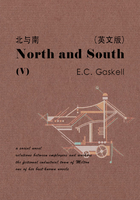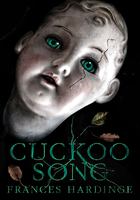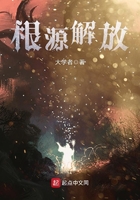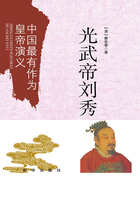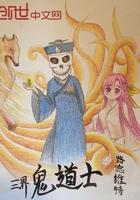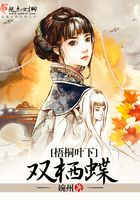Oh, why was I there at the window just when Black rode by on his white steed? Why did I open the shutters intuitively at that exact moment and stare at him so long from behind the snowy branches of the pomegranate tree? I can't tell you for sure. I'd sent word to Esther by way of Hayriye. I was, of course, well aware that Black would take that route. Meanwhile, I'd gone up alone to the room with the built-in closet and the window facing the pomegranate tree to inspect the sheets in the chest. On a whim, and at just the right moment, I pushed the shutters open with all my strength and sunlight flooded the room: Standing at the window, I came face-to-face with Black, who, like the sun, dazzled me. Oh, it was quite lovely.
He'd grown and matured and, having lost his awkward youthful lankiness, he turned out to be a comely man. Listen Shekure, my heart did tell me, he's not only handsome, look into his eyes, he possesses the heart of a child, so pure, so alone: Marry him. I, however, sent him a letter wherein I'd given him quite the opposite message.
Though he was twelve years my elder, when I was twelve, I was more mature than he. Back then, instead of standing straight and tall before me in a fashion befitting a man and announcing that he was going to do this or that, jump from this spot or climb onto that thing, he'd just bury his face in some book or picture, hiding as if everything embarrassed him. In time, he also fell in love with me. He made a painting declaring his love. We'd both matured by then. When I turned twelve, I sensed that Black could no longer look into my eyes, as if he were afraid I'd discover he loved me. "Hand me that ivory-handled knife," he'd say, for example, looking at the knife but unable to look at me. If I asked him, for instance, "Is the cherry sherbet to your liking?" he couldn't simply indicate so with a delicate smile or nod, as we do when our mouths are full, you see. Instead, he'd scream "Yes" at the top of his lungs, as if trying to communicate with a deaf man. He feared looking me in the face. I was a maiden of striking beauty then. Any man who caught sight of me even once, from afar, or from between parted curtains or yawning doors, or even through the layers of my modest head coverings, immediately became enamored of me. I'm not being a braggart, I'm explaining this so you'll understand my story and be better able to share in my grief.
In the well-known tale of Hüsrev and Shirin, there's a moment that Black and I had discussed at length. Hüsrev's friend, Shapur, intends to make Hüsrev and Shirin fall in love. One day Shirin embarks on a countryside outing with her ladies of the court, when she sees a picture of Hüsrev that Shapur has secretly hung from the branch of one of the trees beneath which the outing party has stopped to rest. Beholding this picture of the handsome Hüsrev in that beautiful garden, Shirin is stricken by love. Many paintings depict this moment—or "scene" as the miniaturists would have it—consisting of Shirin's look of adoration and bewilderment as she gazes upon the image of Hüsrev. While Black was working with my father, he'd seen this picture many times and had twice made exact copies by eyeing the original as he painted. After falling in love with me, he made a copy for himself. But this time in place of Hüsrev and Shirin, he portrayed himself and me, Black and Shekure. If it weren't for the captions beneath the figures, only I would've known who the man and maiden in the picture were, because sometimes when we were joking around, he'd depict us in the same manner and color: I all in blue, he all in red. And if this weren't indication enough, he'd also written our names beneath the figures. He'd left the painting where I would find it and run off. He watched me to see what my reaction to his composition would be.
I was well aware that I wouldn't be able to love him like a Shirin, so I feigned ignorance. On the evening of that summer's day when Black gave me his painting, during which we'd tried to cool ourselves with sour-cherry sherbets made with ice said to have been brought all the way from snow-capped Mount Ulu, I told my father that he'd made a declaration of love. At that time, Black had just graduated from the religious school. He taught in remote neighborhoods and, more out of my father's insistence than his own desire, Black was attempting to obtain the patronage of the powerful and esteemed Naim Pasha. But according to my father, Black didn't yet have his wits about him. My father, who'd taken great pains to win Black a place in Naim Pasha's circle, at least as a clerk to begin, complained that he wasn't doing much to further his own cause; in other words, Black was being an ignoramus. And that very night in reference to Black and me, my father declared, "I think he's set his sights very high, this impoverished nephew," and without regard for my mother's presence, he added, "he's smarter than we'd supposed."
I remember with misery what my father did in the following days, how I kept my distance from Black and how he ceased to visit our house, but I won't explain all of this for fear that you'll dislike my father and me. I swear to you, we had no other choice. You know how in such situations reasonable people immediately sense that love without hope is simply hopeless, and understanding the limits of the illogical realm of the heart, make a quick end of it by politely declaring, "They didn't find us suitably matched. That's just the way it is." But, I'll have you know that my mother said several times, "At least don't break the boy's heart." Black, whom my mother referred to as a "boy," was twenty-four, and I was half his age. Because my father considered Black's declaration of love an act of insolence, he wouldn't humor my mother's wishes.
Though we hadn't forgotten him altogether by the time we received news that he'd left Istanbul, we'd let him slip completely out of our affections. Because we hadn't received news about him from any city for years, I deemed it appropriate to save the picture he'd made and shown me, as a token of our childhood memories and friendship. To prevent my father, and later my soldier-husband, from discovering the picture and getting upset or jealous, I expertly concealed the names "Shekure" and "Black" beneath the figures by making it appear as if someone had dribbled my father's Hasan Pasha ink onto them, in an accident later to be disguised as flowers. Since I've returned that picture to him today, maybe those among you inclined to take a dim view of how I revealed myself to him at the window will feel ashamed and reconsider your prejudices somewhat.
Having exposed my face to him, I remained for a while there at the window, showered in the crimson hue of the evening sun, and gazed in awe at the garden bathed in reddish-orange light, until I felt the chill of the evening air. There was no breeze. I didn't care what someone passing in the street would've said upon seeing me at the open window. One of Ziver Pasha's daughters, Mesrure, who always laughed and enjoyed herself saying the most surprising things at the most inopportune times when we went merrily and playfully to the public baths each week, once told me that a person never knows exactly what she herself is thinking. This is what I know: Sometimes I'll say something and realize upon uttering it that it is of my own thinking; but no sooner do I arrive at that realization than I'm convinced the very opposite is true.
I was sorry when poor Elegant Effendi, one of the miniaturists my father often invited to the house—and I won't pretend I haven't spied on each of them—went missing, much like my unfortunate husband. "Elegant" was the ugliest among them and the most impoverished of spirit.
I closed the shutters, left the room and went down to the kitchen.
"Mother, Shevket didn't listen to you," Orhan said. "While Black was taking his horse out of the stable, Shevket left the kitchen and spied on him from the peephole."
"What of it!" Shevket said, waving his hand in the air. "Mother spied on him from the hole in the closet."
"Hayriye," I said. "Fry some bread in a little butter and serve it to them with marzipan and sugar."
Orhan jumped up and down with joy though Shevket was silent. But as I walked back upstairs, they both caught up to me, screaming, pushing and shoving by me excitedly. "Be slow, slow down," I said with a laugh. "You rascals." I patted them on their delicate backs.
How wonderful it is to be home with children as evening approaches! My father had quietly given himself over to a book.
"Your guest has departed," I said. "I hope he didn't trouble you much?"
"On the contrary," he said. "He entertained me. He's as respectful as ever of his Enishte."
"Good."
"But now he's also measured and calculating."
He'd said that less to observe my reaction than to close the subject in a manner that made light of Black. On any other occasion, I would've answered him with a sharp tongue, as I am wont to do. This time, though, I just thought of Black making ground on his white horse, and I shuddered.
I'm not sure how it happened, but later in the room with the closet, Orhan and I found ourselves hugging each other. Shevket joined us; there was a brief skirmish between them. As they tussled we all rolled over onto the floor. I kissed them on the backs of their necks and their hair, I pressed them to my bosom and felt their weight on my breasts.
"Ahhh," I said. "Your hair stinks. I'm going to send you to the baths tomorrow with Hayriye."
"I don't want to go to the baths with Hayriye anymore," Shevket said.
"Why? Are you too grown-up?" I said.
"Mother, why did you wear your fine purple blouse?" Shevket said.
I went into the other room and removed my purple blouse. I pulled on the faded green one that I usually wear. As I was changing, I felt cold and shivered, but I could sense that my skin was aflame, my body vibrant and alive. I'd rubbed a bit of rouge onto my cheeks, which probably smudged while I was rolling around with the children, but I evened it out by licking my palm and rubbing my cheeks. Are you aware that my relatives, the women whom I meet at the baths and everyone who sees me, swear that I look more like a sixteen-year-old maiden than a twenty-four-year-old mother of two past her prime? Believe them, truly believe them, or I shan't tell you any more.
Don't be surprised that I'm talking to you. For years I've combed through the pictures in my father's books looking for images of women and great beauties. They do exist, if few and far between, and always look shy, embarrassed, gazing only at one another, as if apologetically. Never do they raise their heads, stand straight and face the people of the world as soldiers and sultans would. Only in cheap, hastily illustrated books by careless artists are the eyes of some women trained not on the ground or on some thing in the illustration—oh, I don't know, let's say a lover or a goblet—but directly at the reader. I've long wondered about that reader.
I shudder in delight when I think of two-hundred-year-old books, dating back to the time of Tamerlane, volumes for which acquisitive giaours gleefully relinquish gold pieces and which they carry all the way back to their own countries: Perhaps one day someone from a distant land will listen to this story of mine. Isn't this what lies behind the desire to be inscribed in the pages of a book? Isn't it just for the sake of this delight that sultans and viziers proffer bags of gold to have their histories written?
When I feel this delight, just like those beautiful women with one eye on the life within the book and one eye on the life outside, I, too, long to speak with you who are observing me from who knows which distant time and place. I'm an attractive and intelligent woman, and it pleases me that I'm being watched. And if I happen to tell a lie or two from time to time, it's so you don't come to any false conclusions about me.
Maybe you've noticed that my father adores me. He had three sons before me, but God took them one by one and left me, his daughter. My father dotes on me, though I married a man not of his choosing. I went to a spahi cavalry soldier whom I'd noticed and fancied. If it were left to my father, my husband would not only be the greatest of scholars, he'd also have an appreciation for painting and art, be possessed of power and authority, and be as rich as Karun, the wealthiest of men in the Koran. The inkling of such a man couldn't even be found in the pages of my father's books, and so I would've been forced to pine away at home forever.
My husband's handsomeness was legendary, and I gave him the nod through intermediates. He found the opportunity to appear before me as I was returning from the public baths. His eyes were as brilliant as fire, and I immediately fell in love. He was a dark-haired, fair-skinned, green-eyed man with strong arms; but at heart, he was innocent and quiet like a sleepy child. Nevertheless, it seemed, to me at least, that he also had the tang of blood about him, perhaps because he expended all his strength slaying men in battle and amassing booty, even though at home he was as gentle and quiet as a lady. This man—whom my father looked upon as a penniless soldier, and hence, disapproved of—was later allowed to marry me because I threatened to kill myself otherwise. And after they gave him a military fief worth ten thousand silver coins, a reward for his heroism in battle after battle wherein he performed the greatest acts of bravery, truly, everyone envied us.
Four years ago when he failed to return with the rest of the army from warring against the Safavids I wasn't worried at first. For the more experience he had on the battlefield, the more adept and clever he became in creating opportunities for himself, in bringing home greater spoils, in winning larger fiefs, and in enlisting more soldiers of his own. There were witnesses who said he fled to the mountains with his own men after he became separated from a division of the army. In the beginning, I suspected a scheme and hoped he'd return, but after two years, I slowly grew accustomed to his absence; and when I realized how many lonely women like me with missing soldier-husbands there were in Istanbul, I resigned myself to my fate.
At night, in our beds, we'd hug our children and mope and cry. To quiet their tears, I'd tell them hopeful lies; for example, that so-and-so had proof their father would return before spring. Afterward, when my lie would circulate, changing and spreading until it found its way back to me, I'd be the first to believe the good news.
When the main support of the household vanished, we fell upon hard times. We were living in a rented house in Charsh?kap? with my husband's gentlemanly Abkhazian father, who'd never lived an easy life, and his brother, who had green eyes as well. My father-in-law, who left his mirror-making business after his oldest son made his fortune soldiering, returned to take up his trade at a late age. Hasan, my husband's bachelor brother, worked in customs, and as he prospered he made plans to assume the role of "man of the house." One winter, fearing they wouldn't be able to pay rent, they hastily took the slave who saw to the household chores to the slave market and sold her, after which they wanted me to do the kitchen work, wash the clothes and even go out to the bazaars to do the shopping in her stead. I didn't protest by saying, "Am I the type of woman to take on such drudgery?" I swallowed my pride and went to work. But when that brother-in-law of mine Hasan, now without his slave girl to take into his room at night, began forcing my door, I didn't know what to do.
Of course, I could've immediately come back here to the home of my father, but according to the kadi judge my husband was legally alive, and were I to anger my in-laws, they might not stop at forcing my children and me back to my husband's home, but humiliate us further by having me and my father, who had "detained" me, punished. To tell the truth, I could've loved Hasan, whom I found to be more humane and reasonable than my husband, and who was obviously very much in love with me. But if I were to do this without careful thought, I might find myself, God forbid, his slave instead of his wife. In any event, because they were afraid that I would demand my portion of the inheritance and then abandon them and return to my father with the children, they, too, weren't eager for a judge's decision proclaiming my husband's death. If, in the eyes of the judge, my husband wasn't dead, I naturally couldn't wed Hasan, nor could I marry anyone else. Because this dilemma bound me to that house and that marriage, my in-laws preferred my having a "missing" husband, and the continuation of this vague situation. For lest you forget, I saw to all their household chores, I did everything from their cooking to their laundry, and furthermore, one of them was madly in love with me.
When my father-in-law and Hasan grew dissatisfied with this arrangement and decided it was time for me to marry Hasan, it was necessary first to arrange for the witnesses to convince the judge of my husband's death. Thus, if my missing husband's closest kin, his father and brother, accepted his death, if there was no longer anyone who objected to declaring my husband dead, and if, for the price of a few silver coins, witnesses would testify that they'd seen the man's corpse in the field of battle, the judge would also oblige. It would be most difficult to convince Hasan once I was declared a widow that I wouldn't leave the household, demand my inheritance rights or ask for money to marry him; and moreover, that I'd marry him of my own free will. Naturally, I knew that to gain his trust in this regard, I'd have to sleep with him in a very convincing manner so he'd be completely assured I was giving myself to him, not to get his permission to divorce my husband, but because I was sincerely in love with him.
With some effort, I could've fallen in love with Hasan. He was eight years younger than my missing husband, and when my husband was at home, Hasan was like my little brother, and this sentiment endeared him to me. I liked his humble and passionate demeanor, his pleasure in playing with my children and even the way he desirously looked at me as though he were dying of thirst and I were a glass of cold sour-cherry sherbet. On the other hand, I also knew I'd really have to force myself to fall in love with a man who made me wash clothes and didn't mind my having to wander through markets and bazaars like a common slave. During those days when I'd go to my father's house and cry endlessly as I stared at the pots, pans, bowls and cups, during those nights when the children and I would sleep cuddled up together in solidarity, Hasan never gave me cause for a change of heart. He had no faith that I could love him or that this essential and mandatory precondition for our marriage would manifest itself; and because he had no confidence in himself, he acted inappropriately. He tried to corner me, kiss me and fondle me. He declared that my husband would never return, that he would kill me. He threatened me, cried like a baby and in his haste and fluster, never allowed time for a true and noble love to be born. I knew I could never wed him.
One night, when he tried to force the door of the room where I slept with the children, I rose immediately, and without a thought that I might frighten them, screamed at the top of my lungs that evil jinns had entered the house. This fit of jinn-panic and screaming awakened my father-in-law and thereby exposed Hasan, whose excited violence was still visible, to his father. Amid my ridiculous howls and inane rantings about jinns, the staid old man to his embarrassment acknowledged the awful truth: His son was besotted and had inappropriately approached his brother's wife, a mother of two. My father-in-law made no reply when I said I wouldn't sleep a wink till morning, keeping watch at the door to protect my children against "the jinns." The following day, I announced that I'd be returning to my father's home with my children for an extended stay to care for him in his time of illness; thus did Hasan accept his defeat. I returned to my father's house, taking with me as mementos of my married life the clock with bells plundered from Hungarian lands by my husband (who'd never succumbed to the temptation to sell it), the whip made from the sinews of the most explosive of Arab steeds, the Tabriz-made ivory chess set with whose pieces the children used to play war and the silver candlesticks (booty from the Battle of Nahjivan), which I'd fought so desperately to keep when money was short.
As I expected, quitting my absent husband's house turned Hasan's obsessive and disrespectful love into a hopeless inferno. Knowing full well that his father wouldn't stand behind him, instead of threatening me, he sought my pity by sending me love letters in whose corners he drew forlorn birds, teary-eyed lions and sad gazelles. I won't hide from you the fact that I've recently begun to read them anew, those letters that reveal Hasan's rich imagination, of which I wasn't aware when we lived together under the same roof—assuming he didn't enlist one of his more artistic or poetic friends to write and embellish them. In his last letter, Hasan pledged that I would no longer be a slave to housework, and that he'd made a lot of money. This disclosure in his sweet, respectful and humorous tone, compounded by the endless fights and demands of the children, and my father's complaints, turned my head into a veritable kettledrum. Indeed, it was in order to heave a sigh of relief to the world that I'd opened the shutters of that window.
Before Hayriye set the dinner table, I prepared a draught of bitters from the best Arabian date palm flower; I mixed in a spoonful of honey and a little lemon juice, then quietly entered my father's company as he was reading the Book of the Soul, and like a spirit myself, placed it before him without making my presence known, as he preferred.
"Is it snowing?" he asked in such a faint and melancholy voice that I understood at once this would be the last snowfall my poor father would ever see.


